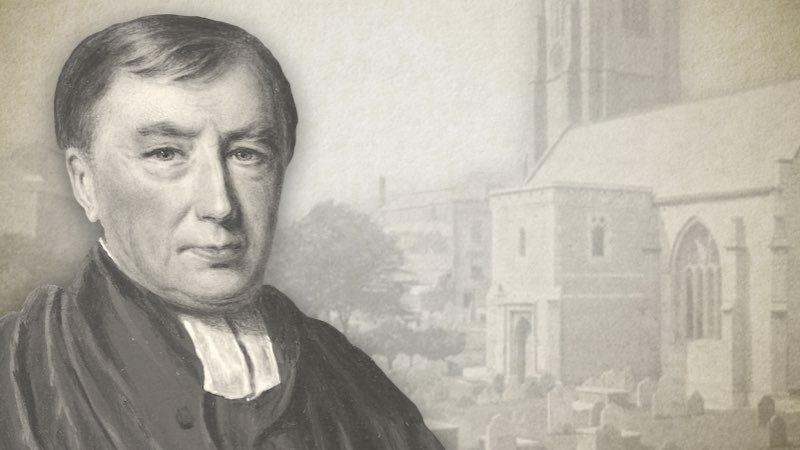
July 12—Morning Devotion
“And they began to pray him to depart out of their coasts.”—Mark 5:17
And was this Jesus whom they desired to depart? Yes: and what had the Redeemer done to merit this treatment? He had dispossessed the evil spirit from the mind of a poor creature, and caused the whole country to be freed from the fury of one whom no chains could bind: was this the cause? Yes. And is it possible that so divine an act could have had such an effect upon the minds of a whole body of people? What, would these Gadarenes rather have the devil ranging among them, in the person of this poor creature, than the Son of God in the kindness of our nature? Pause, my soul: is it not the same now? Do not men still prefer the raging uncontrolled lusts of their own hearts, the dominion of Satan, and the customs, pursuits, and follies, of the world; to the grace, mercy, and sweet dominion of Jesus? Do they not indeed, if not in words, say, “Depart from us, we desire not the knowledge of thy ways?” Pause again, my soul. Was there not a time when the same was thy case? Indeed there was. And is not every one so by nature? And what but an act of grace, like the miracle Jesus wrought on this poor man, can bring any one out of it? Art thou, my soul, brought out of it? Yes, if so be, like him, thou art now sitting at the feet of Jesus, clothed, and in thy right mind. Surely, Lord, thou hast wrought this blessed change upon me! Could I desire thee to depart out of our coasts? Nay, is it not the daily, hourly desire of my heart, that thou wouldest be with me, dwell in me, reign and rule in me, and be my portion, my God, my Saviour, and make me thine for ever? Sweet testimony, in the midst of all my wanderings, coldness, undeservings! Cherish it, my soul! Jesus will not depart from thee. That love which brought him down from heaven to save a world, led him over the lake of Genesareth to save one poor sinner. And he who came in love unsent for, departed not until he was sent away. Oh ye poor blind, deluded, Gadarenes! Oh my poor, equally blind and deluded countrymen and fellow-sinners, who know not, nor desire to know Christ Jesus! Who are ye that thus reject the Lord of life and glory, and desire him to depart out of your coasts?
Robert Hawker (1753-1827) was an Anglican (High-Calvinist) preacher who served as Vicar of Charles Church, Plymouth. John Hazelton wrote of him:
“The prominent features…in Robert Hawker's testimony…was the Person of Christ….Dr. Hawker delighted to speak of his Lord as "My most glorious Christ.” What anxious heart but finds at times in the perusal of the doctor's writings a measure of relief, a softening, and a mellowing? an almost imperceptible yet secret and constraining power in leading out of self and off from the misery and bondage of the flesh into a contemplation of the Person and preciousness of Christ as "the chiefest among ten thousand and the altogether lovely." Christ and Him crucified was emphatically the burden of his song and the keynote of his ministry. He preached his last sermon in Charles Church on March 18th, 1827, and on April 6th he died, after being six years curate and forty-three years vicar of the parish. On the last day of his life he repeated a part of Ephesians 1, from the 6th to the 12th verses, and as he proceeded he enlarged on the verses, but dwelt more fully on these words: "To the praise of His glory Who first trusted in Christ." He paused and asked, "Who first trusted in Christ?" And then made this answer: "It was God the Father Who first trusted in Christ."
Robert Hawker on the Biblical Covenants (Complete)
Robert Hawker's Poor Man's Morning Portions




